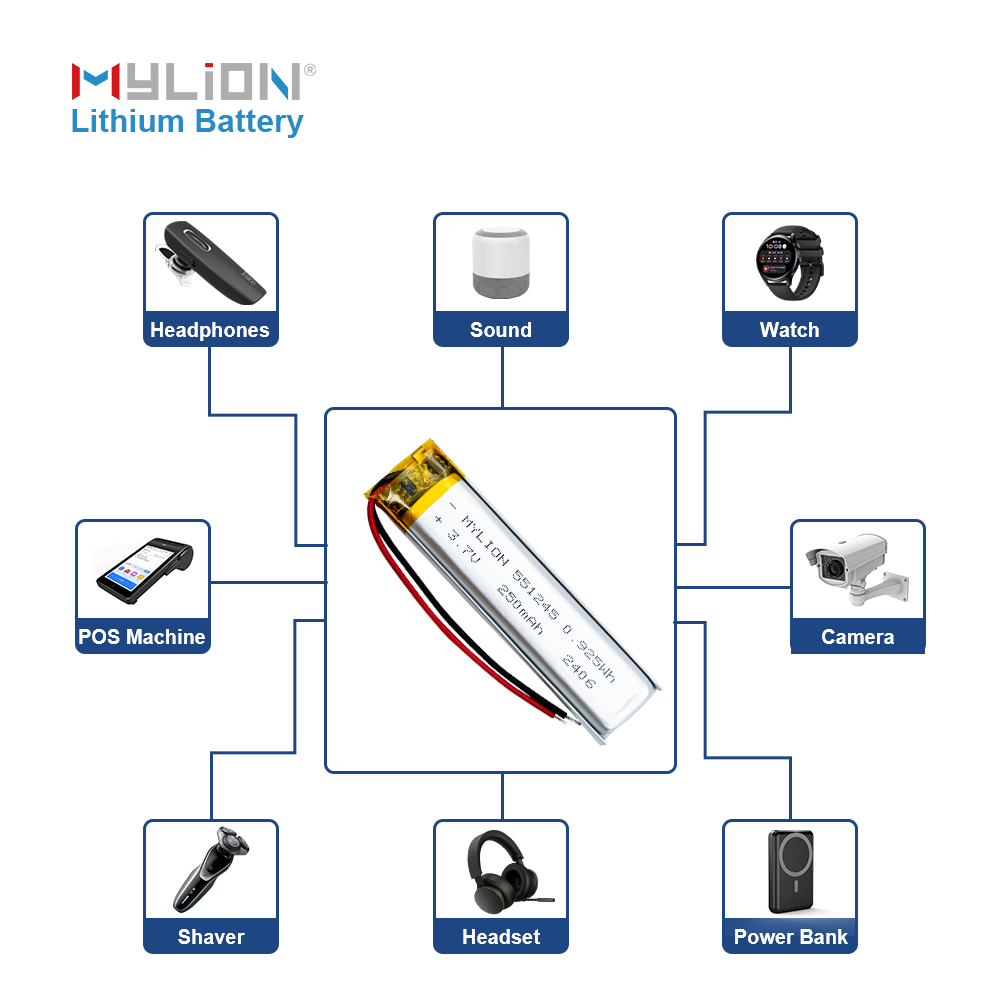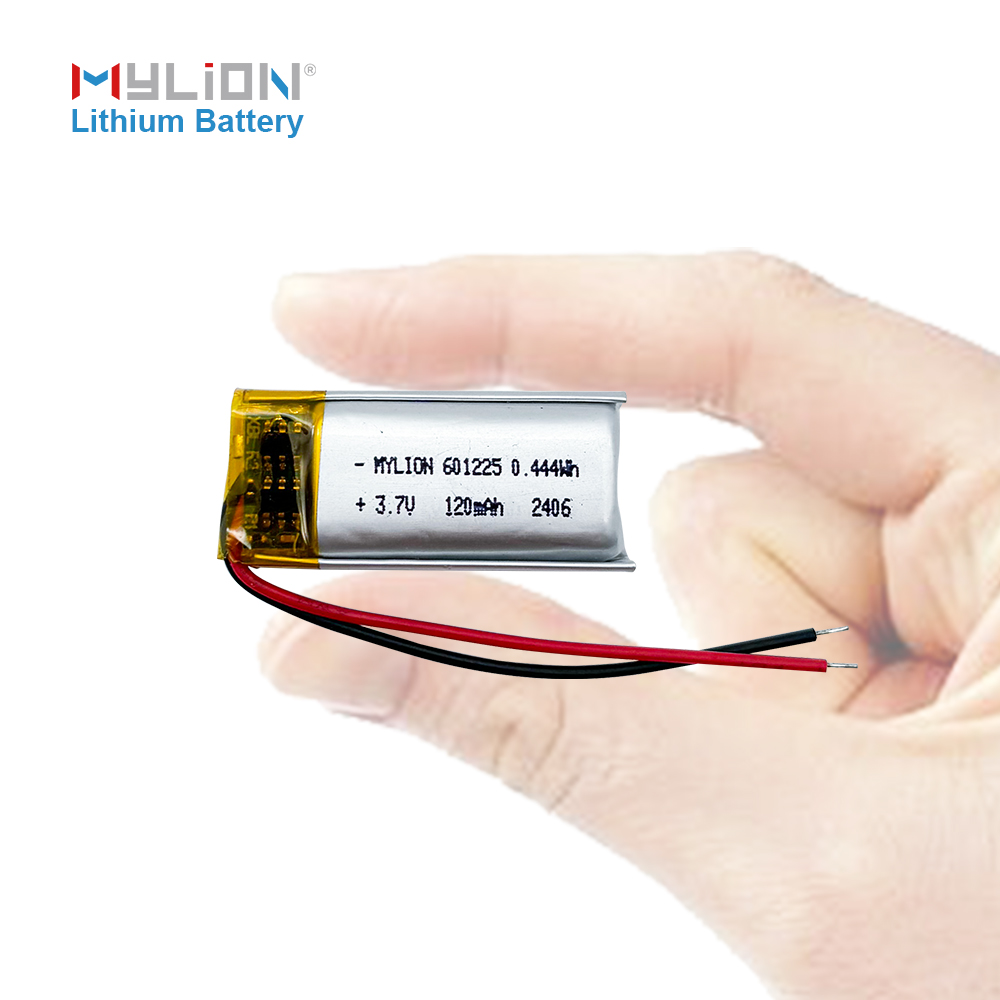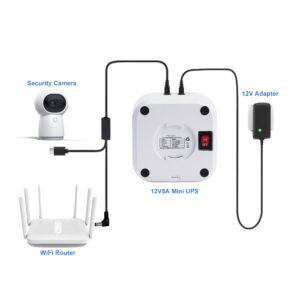Lithium polymer (LiPo battery) technology is used in a wide variety of applications due to its high energy density, lightweight design, and efficient power delivery. However, to realize the full potential of LiPo batteries, they must be paired with a battery management system (BMS). The BMS plays a vital role in monitoring and controlling all aspects of battery performance, including charging, discharging, and overall health. Working together, LiPo batteries and BMS ensure that the battery performs at its best while maintaining safety, longevity, and efficiency. This article explores the relationship between LiPo batteries and BMS, highlighting how their collaboration improves battery performance.

1.Understand the role of lithium polymer batteries
Lithium polymer batteries are well known for their ability to store a lot of energy in a small and light package. Their flexible form factor, high discharge rate and relatively high efficiency make them ideal for applications such as drones, remote control (RC) cars, consumer electronics and electric vehicles. However, these batteries are sensitive to improper charging, over-discharging and high temperatures, which can lead to performance degradation, safety risks and shortened life.
This is where the battery management system (BMS) comes into play. By closely monitoring the status of lithium polymer batteries, the BMS helps prevent problems such as overcharging, deep discharge and overheating, ensuring that the battery operates safely and efficiently.
2.What is a Battery Management System (BMS)?
A Battery Management System (BMS) is an electronic system designed to manage rechargeable batteries to ensure they function optimally throughout their service life. The main functions of a BMS include:
Voltage Monitoring: Ensures that the battery operates within safe voltage limits by continuously monitoring the voltage of each cell.
Temperature Regulation: Prevents the battery from overheating by monitoring the temperature and activating the cooling system or shutting down the battery when necessary.
State of Charge (SOC) and State of Health (SOH): Determines the remaining charge in the battery and assesses the overall health of the battery to predict when it needs to be replaced.
Balancing Cells: Ensures that all cells within a LiPo battery pack are balanced in terms of voltage, preventing individual cells from being undercharged or overcharged, which can cause battery failure.
Overcharge and Overdischarge Protection: Prevents batteries from being charged beyond their capacity or discharged too much, both of which can cause permanent damage.
Essentially, a BMS acts like the “brain,” monitoring and protecting the LiPo battery while ensuring it performs optimally.
3.How BMS optimizes the charging process of lithium polymer batteries
The charging process is one of the most critical aspects of the operation of lithium polymer batteries. Overcharging or charging too quickly can damage the battery, shorten its life, and even cause safety issues such as thermal runaway. The battery management system ensures that lithium polymer batteries are charged within the optimal voltage and current range, which helps to extend the battery’s life and improve its safety.
Voltage and current regulation
The BMS carefully controls the voltage and current applied to the lithium polymer battery during charging. The maximum charging voltage of each lithium polymer battery is usually 4.2V. Charging beyond this voltage may cause internal pressure to build up, resulting in expansion or even fire. The BMS will monitor the voltage of the battery and cut off the charging process when the battery reaches the safe voltage limit.
In addition, the BMS ensures that the charging current does not exceed the recommended specifications of the battery, because high currents may cause excessive heat to be generated, which may damage the battery or affect its performance.
Temperature control during charging
Temperature plays a vital role in the health of lithium polymer batteries. If the battery temperature rises too high during charging, it may reduce the battery’s performance and cause thermal runaway. The BMS continuously monitors the temperature of the LiPo battery during charging and can shut down the charging process if the battery overheats, preventing damage.

4.Discharge process and protection
The discharge process of lithium polymer batteries is equally important, because over-discharging lithium polymer batteries can cause serious damage and reduce their capacity over time. The battery management system helps manage the discharge process by monitoring the voltage level of the battery and ensuring that the battery does not drop below a critical level.
Over-discharge protection
Lithium polymer batteries should not be discharged below a specific voltage (usually around 3.0V per cell). Discharging below this threshold may cause irreversible damage to the battery, shortening its life and efficiency. The BMS prevents this from happening by detecting when the battery voltage drops too low and cutting off the discharge to avoid permanent damage.
Load balancing and efficiency
Lithium polymer batteries are composed of multiple cells, and it is necessary to ensure that all cells are discharged at the same rate. If one battery is discharged faster than the others, it may cause an imbalance, affecting the overall performance and safety of the battery. The BMS helps balance the load of all batteries, optimize the discharge process and ensure that the batteries operate at maximum efficiency.
5.Improve Battery Life and Overall Efficiency
Battery management systems not only optimize the charging and discharging process, but they can also help extend the overall life of LiPo batteries by monitoring the long-term health of the battery.
State of Charge (SOC) Monitoring
BMS tracks the state of charge (SOC) of LiPo batteries, providing real-time information about the remaining capacity of the battery. This allows users to avoid deep discharges, which can lead to battery failure. Additionally, keeping LiPo batteries within the 20%-80% charge range can significantly extend their life, and BMS can help manage this practice by alerting users when the battery is overcharged or undercharged.
State of Health (SOH) Monitoring
BMS also monitors the state of health (SOH) of LiPo batteries, which refers to the battery’s overall condition and ability to hold a charge. LiPo batteries naturally degrade over time, and BMS can track this process to provide users with data on when the battery needs to be replaced. This helps optimize the efficiency of the devices using the battery.

Conclusion: Importance of BMS for Li-Po Battery Optimization
The collaboration between Li-Po batteries and battery management systems (BMS) is essential to ensure optimal performance, safety, and longevity. The BMS intelligently manages the charging and discharging process, protects the battery from extreme conditions, and helps maximize the battery’s lifespan. For consumers and industries that rely on Li-Po batteries for high-performance applications, a well-designed BMS is essential to prevent potential hazards and ensure the efficiency and safety of devices powered by these batteries.
By understanding the role of the battery management system and how it works in tandem with Li-Po batteries, users can ensure their devices run smoothly, safely, and efficiently for long periods of time.





